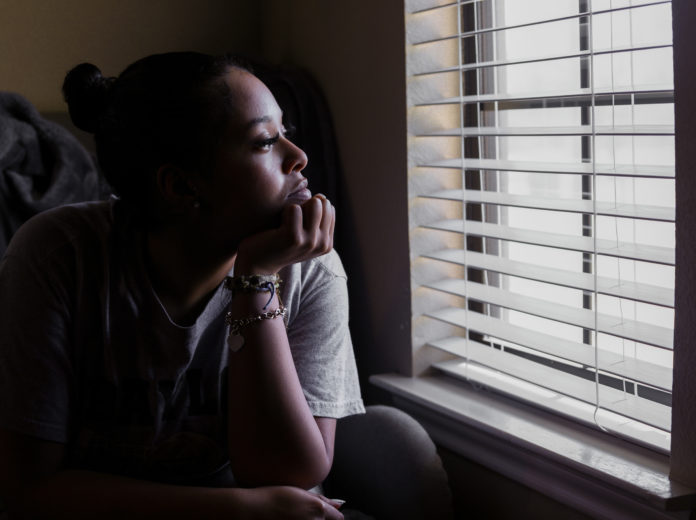
By Erianne Lewis | Staff Writer
More Than We Can Bear (MTWCB), an event that was created in 2010 after the deaths of two African American alumni by suicide, was reinstated this year by the Academy for Leadership Development and Community Engagement & Service.
The forum is specifically devoted to address and increase awareness of mental health issues of people and communities of color. The event this year strove to discuss “the effects of racism on the success of minority students, the true meaning of reconciliation, and how stories can be used to build bridges,” according to a synopsis of the event.
Dr. Monique Marsh-Bell, assistant athletic director for Mental Health Services and a member of the planning committee for MTWCB, said the event originally ended due to it being glossed over in the restructuring of the Office for Community Engagement and Service.
“Like many new endeavors, they start because someone has a vision and passion for something and leads the charge,” Marsh-Bell wrote. “MTWCB was the brainchild of Ramona Curtis, who at the time was the director of the Office for Community Engagement & Service. She developed MTWCB and led the committee. When the office was restructured, and later Mrs. Curtis retired from the university, unfortunately MTWCB kind of got overlooked. But there was plenty of passion and vision, so we were eventually able to revive MTWCB. And as someone who Mrs. Curtis poured so much into during her time at Baylor, I wanted to make sure her vision and legacy was not forgotten.”
For the event this year, the Academy for Leadership Development brought in Dr. Beverly Daniel Tatum, an esteemed psychologist, best-selling author and former president of Spelman College. Marsh-Bell said she has been wanting to bring Dr. Tatum to campus for many years now.
“She is an expert on the topic of race in higher education and a psychologist, which makes her a perfect fit to speak about how race in higher education affects the mental health and success of marginalized groups on campus,” Marsh-Bell said.
Tatum said in an email that Baylor contacted her through a link on her website, as most institutions do.
“I accept most invitations if I have the time available on the calendar, and if the format and topic are aligned with my interests,” Tatum wrote. “The time requested by Baylor was available and the format and topic matched my interests.”
Marsh-Bell said MTWCB strives to inform people about race-related issues effects on students, faculty and staff.
“We want to educate people [about] the effects issues of race on a college campus can have on the students, faculty and staff of that campus. We wanted to gain knowledge from an expert on how we could do a better job of being inclusive and like Dr. Tatum said, making Baylor a place where ‘everyone sees themselves in the photograph,'” Marsh-Bell said.
Tatum spoke on many issues including the isolation many students of color feel in white spaces. Laguna Beach, Calif., sophomore Ashley Flores, who attended the event, said as a minority student, she was fearful coming to Baylor because she was worried she wasn’t going to fit in.
“Coming from a minority group and coming from a Hispanic background … I was really terrified coming to Baylor because I thought, ‘Am I going to fit in?’ I really questioned if I really belong here,” Flores said. “Being a part of organizations, being a part of school events, connecting with faculty and staff and everything has definitely helped with feeling that I do belong here.”
In her national bestseller “Why Are All the Black Kids Sitting Together in the Cafeteria,” Tatum addressed this isolation head on. Tatum said universities should strive to create a more diverse community to help with the seclusion many students of color feel.
“Many campuses need to increase the diversity of the faculty and staff, as the greater presence of BIPOC faculty and staff helps to reduce the sense of isolation that BIPOC students often feel. Expanding BIPOC curricular offerings is also important,” Tatum wrote.
There have been a few changes made to the format of the event to best fit COVID-19, but it is still similar to the original event.
“The original MTWCB events were very similar in format. There were keynote speakers on the topic of minority mental health followed by a Q&A session,” Marsh-Bell wrote. “However, at that time, we were able to have events in person so the speaker would also meet with smaller groups, student leaders or faculty and staff, perhaps over lunch or dinner, to dive deeper into what Baylor can do to improve our community around the issue of race and the effects of race and racism on mental health.”
Marsh-Bell said in an email that MTWCB was almost placed on hold due to COVID-19 moving everything to an online format.
“We started planning pre-COVID-19, so of course with the onset of the pandemic a lot had to change including moving to a virtual platform. We thought long and hard about putting the return of MTWCB on pause until we could have the event in person,” Marsh-Bell wrote. “Finally, we made the decision to move forward as we recognized the need to have this conversation now and that we could not predict how long we would be on hold if we waited until we could have an in-person event of this size.”





